A Rich Taste of Brazilian Foods and Drinks (+BONUS recipe)
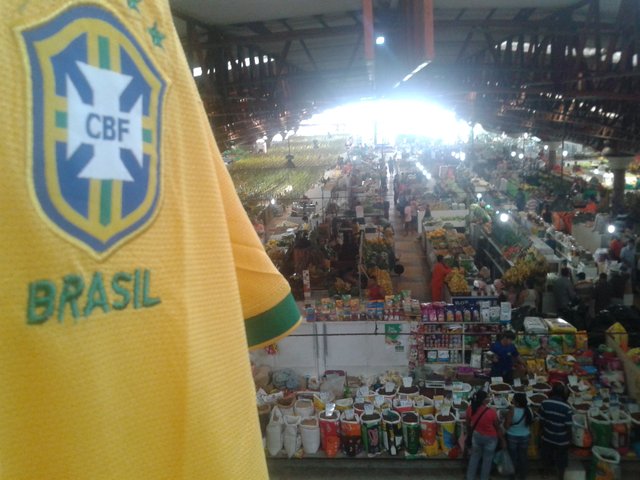
Introduction
A country's culture is written also in its foods and drinks. One cannot visit a new place without experiencing its unique tastes and that includes me. First things I usually do after arriving somewhere is go out to the closest food market and find something interesting to eat or drink.
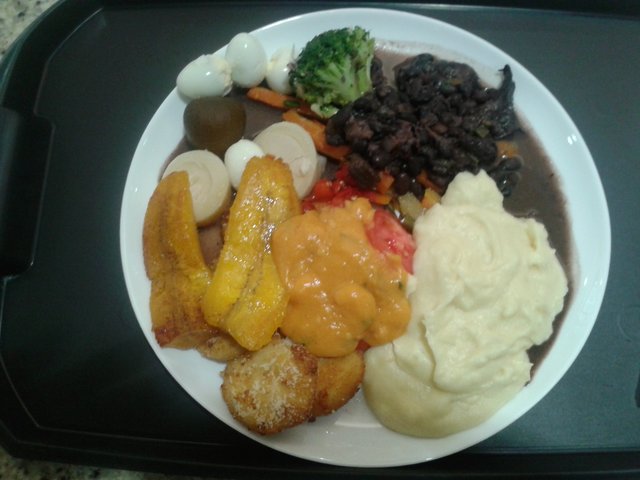
Assortment of foods from shopping mall
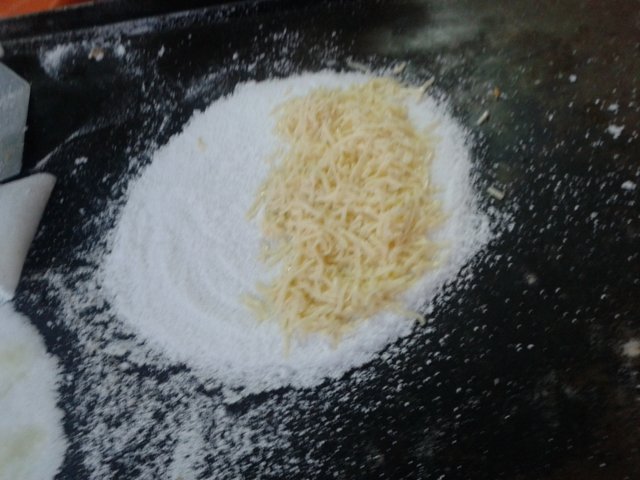
Cheese tapioca
While I am not so impressed with the food as I have heard others going on about, I can say I have mixed feelings about Brazilian food. I am very pleased about the variety of exotic fruits available, most of which I have never seen or heard of in Europe, like caju, cajá, cupuaçu, guava, pina, etc. Most of these fruits you can only consume in juices which are not usually fresh but come from a small iced pack of the fruit juice with water and sugar added. You can ask for sugar not to be added of course, if you prefer. I like to buy fruits from local markets where they are a lot cheaper than supermarkets and make smoothies out of them. My favourite smoothies is usually made from a mix of caju (cashew) fruit, papaya, mango, bananas, oranges and ice cubes. By the way, did you know that one cashew nut is the seed on one cashew fruit?
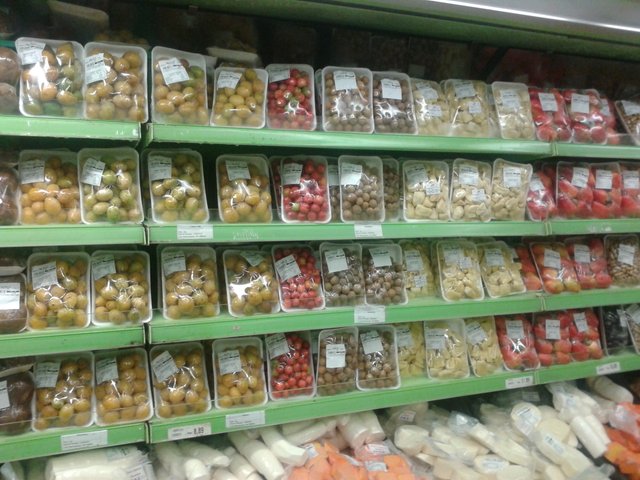
Cashew fruits and jack fruit on the right hand side
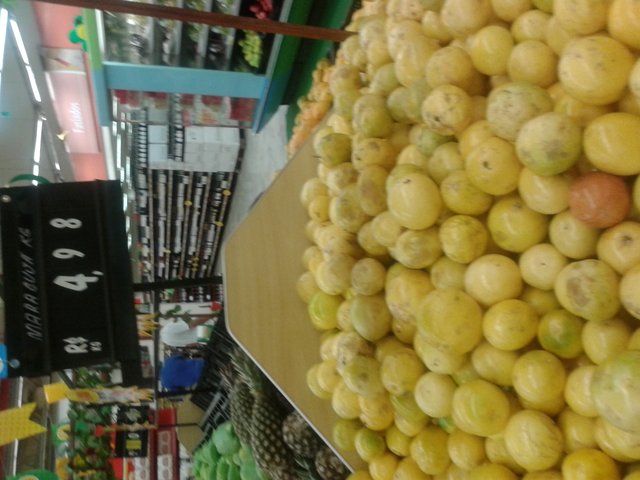
Local passion fruits, great for making juices and cocktails
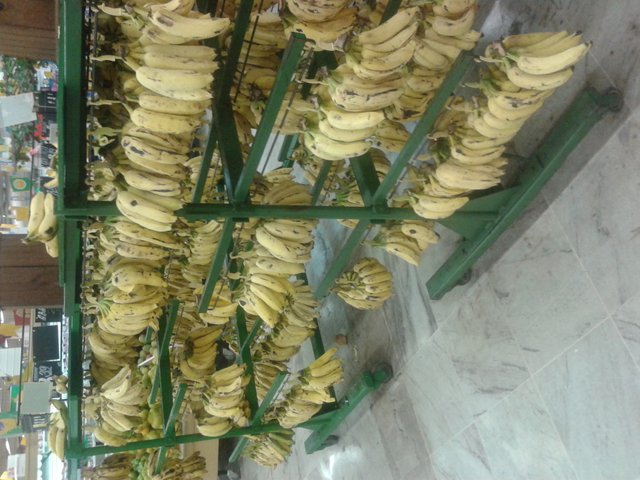
Bananas, many types of bananas, some for cooking, some for eating raw
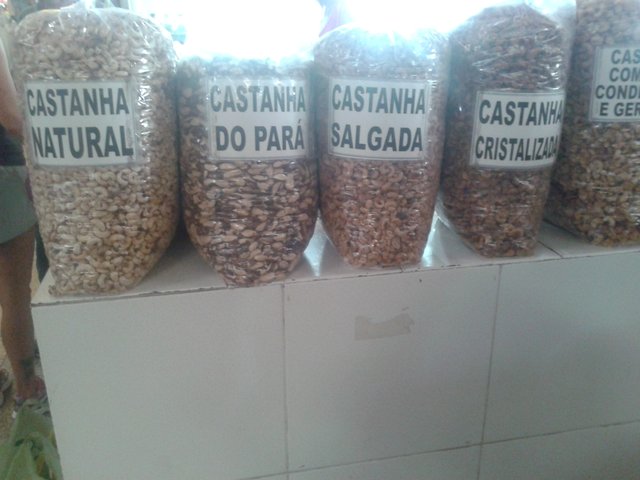
Famous Brazil nuts and cashed nuts (raw, sweetened with sugar or salted)
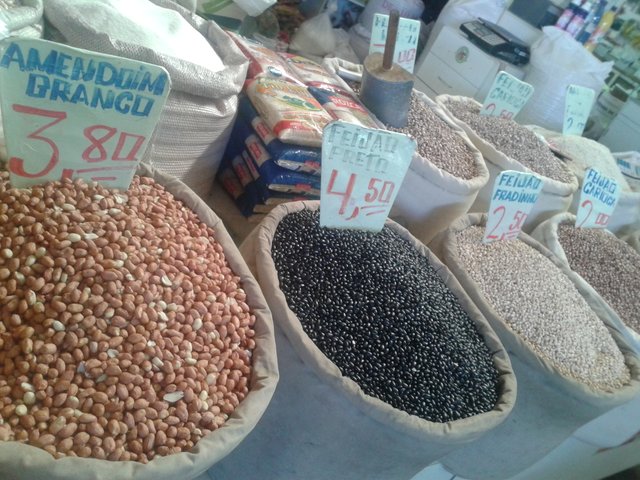
Different local beans, black beans are used in delicious feijoada
Açaí na tigela
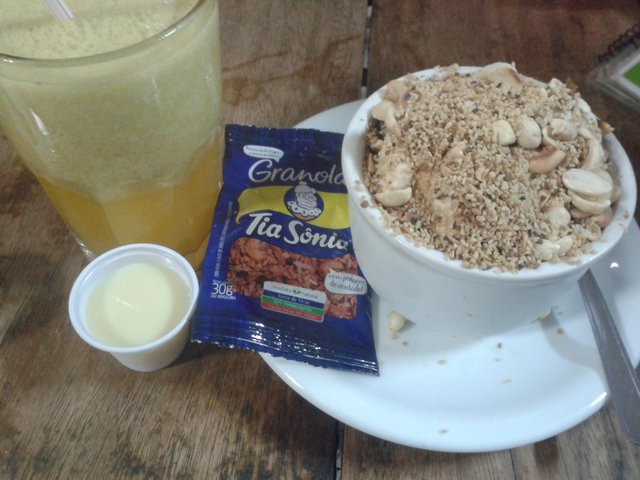
My favourite dish is a desert, açaí na tigela, an ice-cream like mix of açaí berries, a superfood from the Amazon, ice and sugar topped with different nuts, banana slices, cereals or cocoa flakes. You get served with a small cup of condensed milk and an extra small bag of cereals, like what you are already having is not sweet enough or does not have enough in it.
Amazing fruit smoothies
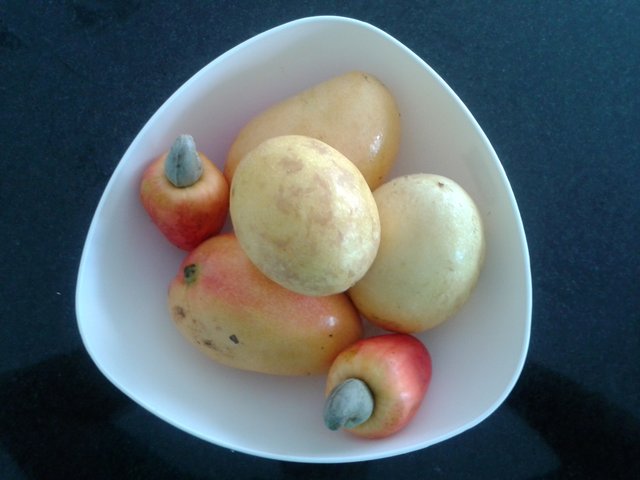
Mango, passion fruit and cashew fruit, a great smoothie mix
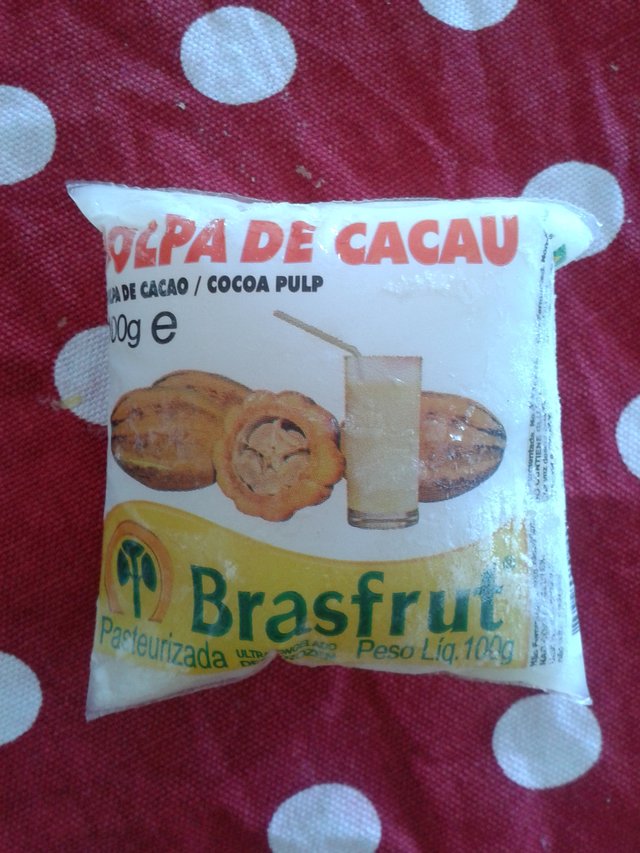
Frozen fruit pulp, 100% fruit
Another good thing you can buy from the big supermarkets is frozen fruit pulp. They cost around 1 or 2 Reais and come in a 100 ml pack and most contain 100% fruit pulp, so there are no added ingredients. You mix the frozen pulp with water in a blender when you want to make your juice. You can find a lot of exotic fruits like mango, mangaba, caju, cacao, cajá, umbu, maracuja and others in this frozen pulp form.
Aqua de coco is like water for Brazilians
I also love drinking cold and fresh coconut water straight from a coconut, which is about 3-4 Reais, on most beaches, also you can eat the interior if you ask for your coconut to be opened after you finish drinking its refreshing water. Drinking fresh and iced sugar cane juice is also a tropical delight and costs the same as coconut water.
Interesting is that oranges have a green peel here and you will very rarely find lemons, instead limes are everywhere. There are at least five types of bananas to choose from, some that you need to cook before you eat, like plantain.
The food itself, in the North-East at least, is based on grilled or fried meat, sun dried beef, cooked meals with different sauces, some of which contain coconut milk and other tropical ingredients. Some thick soups, called caldinhos, are good like caldo de mocotó. Crabs (caranguejo, siri or aratu) and prawns (camaraos) are also very popular and I like them a lot, as I am a fan of seafood and fish.
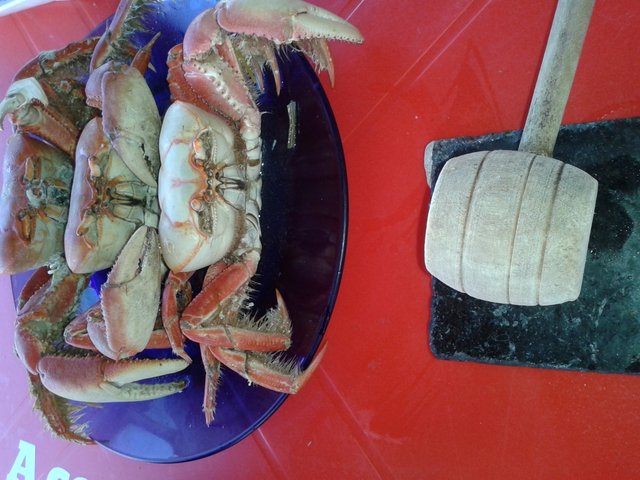
Tastiest crabs you can find
There's a small selection of good fresh or matured cheese. Tapioca pancakes, both sweet and salty along with pastels, which are crusty pies with different fillings, are the typical fast food. On the beach, you can find the tasty queijo de coalho, a small cheese block on a stick melt on the spot by sellers. Coxinhas and other pastries are popular too but not my favourites.
GM foods
One thing to keep in mind is that Brazil is the world second largest producer of GM foods so as I am against eating genetically modified foods, I read the labels and avoid corn and soya (which I didn't eat anyway) and their derived products that are ingredients in other foods, as well as rapeseed oil, which can be quite difficult when you buy some new products. If you want to learn more about GM foods, you can start at this Greenpeace article.
BONUS - Making passion fruit juice at home
Buy a bunch of ripe passion fruit, make sure they feel like they are full inside, some can be light when you hold them in your hand. At home, you discover the light ones have gone bad.
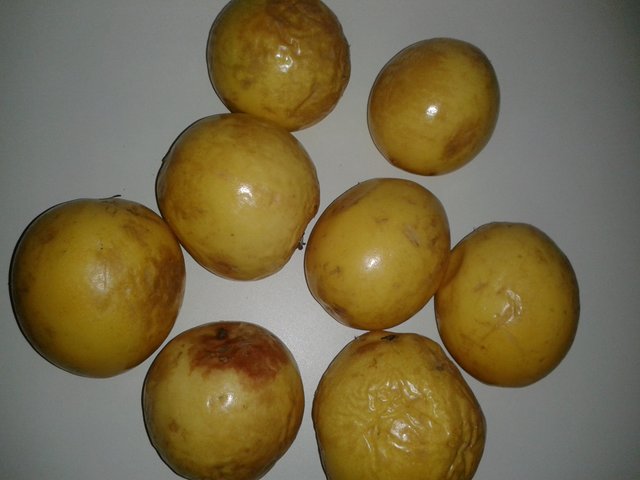
This is how the good ones look inside. Cut them in half and with a spoon get the yellow bits out gently.
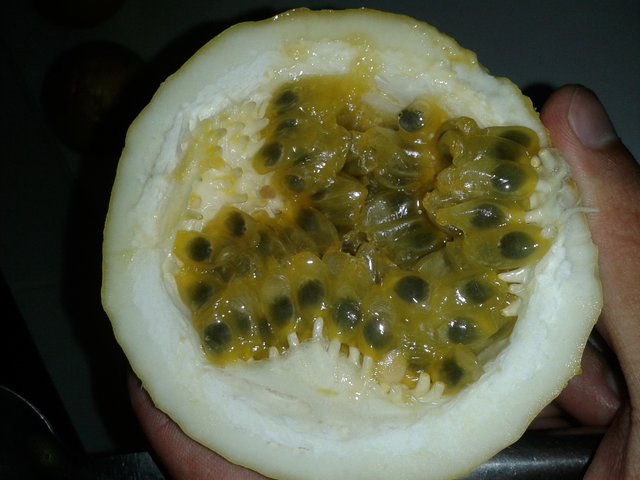
Put all yellow parts in a strainer and crush them with a big spoon so only the black seeds are left. After that, pour some water in the resulting juice, to your taste. All done!
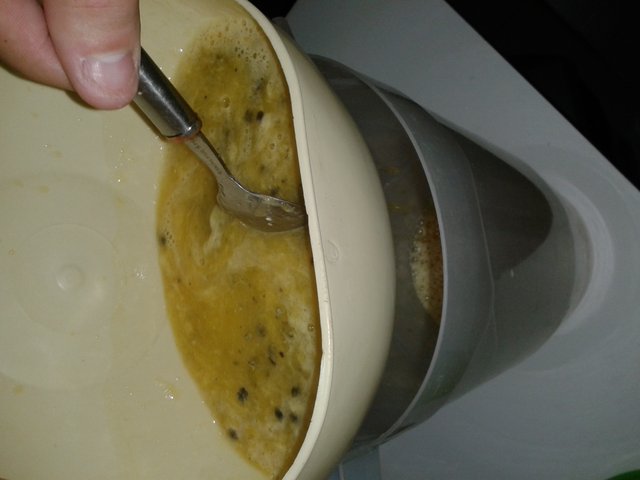
Of course, this article does not talk about all the great foods that exist in Brazil, I would need to write books for that. It's just about some that I experienced.
A more comprehensive list of Brazilian foods can be found here: http://en.wikipedia.org/wiki/List_of_Brazilian_dishes
If you enjoyed reading my article, why not:

Hi, welcome to Brazil. Loved your post açaí is really one of the best deserts we have I love it.
Try feijoada it's very tasty you will love it.
Thanks! I did, it's one of my favorites. Boa sorte!
Hey @andreiwebtravel, great post! I enjoyed your content. Keep up the good work! It's always nice to see good content here on Steemit! Cheers :)
Thanks for reading it!